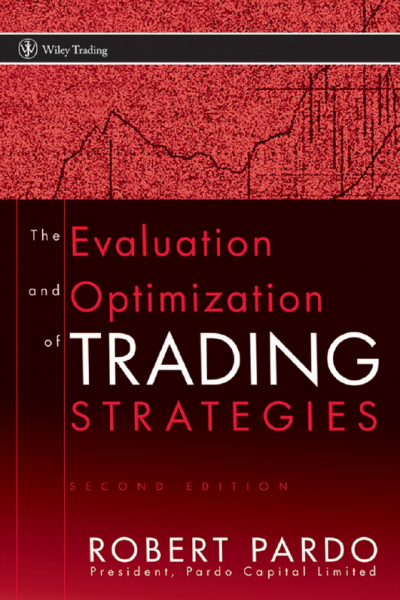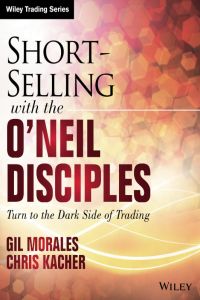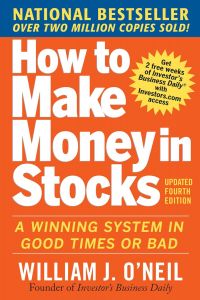The Evaluation and Optimization of Trading Strategies
The Evaluation and Optimization of Trading Strategies.
Đặt in thành sách tại HoaXanh, xem sách in mẩu trong video bên dưới.
- 135,000đ
- Mã sản phẩm: THE154955
- Tình trạng: 2
CHAPTER 1 On Trading Strategies 5
Why This Book Was Written 7
Who Will Benefit from This Book? 8
The Goals of This Book 10
The Lay of the Land 10
CHAPTER 2 The Systematic Trading Edge 17
Discretionary Trading 18
Raising the Bar 19
Verification 22
Quantification 24
Risk and Reward 24
The Performance Profile 26
Objectivity 27
Consistency 29
Extensibility 32
The Benefits of the Historical Simulation 33
Positive Expectancy 34
The Likelihood of Future Profit 34
The Performance Profile 35
Proper Capitalization 35
A Measure of Real-Time Trading Performance 36
The Benefits of Optimization 37
The Benefits of the Walk-Forward Analysis 38
The Advantages of a Thorough Understanding 39
Confidence 40
Strategy Refinement 41
CHAPTER 3 The Trading Strategy Development Process 43
Two Philosophical Approaches to Strategy Development 44
The Scientific Approach 44
The Path of Empirical Development 45
An Overview of the Trading Strategy Design Process 47
Step 1: Formulate the Trading Strategy 49
Step 2: Translate the Rules into a Definitive Form 49
Step 3: Preliminary Testing 50
Step 4: Optimize the Trading Strategy 51
Step 5: The Walk-Forward Analysis 52
Step 6: Trade the System 53
Step 7: Evaluate Real-Time Performance 54
Step 8: Improving the System 55
CHAPTER 4 The Strategy Development Platform 57
The Scripting Language 58
Diagnostics 59
Reporting 62
Optimization 68
The Objective Function 68
Speed 68
Automation 69
Walk-Forward Analysis 69
Portfolio Analysis 70
In Conclusion 71
CHAPTER 5 The Elements of Strategy Design 73
The Three Principal Components of a Strategy 74
Entry and Exit 74
Risk Management 74
Position Sizing 75
An Overview of a Typical Trading Strategy 75
A Trade Equals an Entry and an Exit 76
Entry Filters 78
The Management of Risk 79
Trade Risk 80
Strategy Risk 82
Portfolio Risk 84
The Management of Profit 85
The Trailing Stop 85
The Impact of Overnight Change on the Trailing Stop 87
Profit Targets 87
The Impact of Overnight Change on Target Orders 88
Position Sizing 89
Advanced Strategies 91
Summary 92
CHAPTER 6 The Historical Simulation 93
The Essential Reports 94
The Performance Summary 94
The Trade List 94
The Equity Curve 107
Performance by Period 108
The Importance of Accuracy 109
Software Limitations 109
Rounding Issues 109
Phantom Trades 111
Price Orders 112
Realistic Assumptions 113
Price and Trade Slippage 113
Opening Gap Slippage 115
Opening and Closing Range Slippage 116
Slippage Due to Size 117
The Significance of Slippage 117
Limit Moves 118
Major Events and Dates 118
Historical Data 120
Stock Prices 120
Cash Markets 120
Futures Markets
The Continuous Contract 124
The Perpetual Contract 124
Adjusted Continuous Contracts 125
The Size of the Test Window 126
Statistical Requirements 127
Sample Size and Statistical Error 127
How Many Trades? 129
Stability 129
Degrees of Freedom 130
Frequency of Trading 131
Types of Markets 132
The Bull Market 132
The Bear Market 134
The Cyclic Market 135
The Congested Market 137
Efficient Markets 137
The Life Cycle of a Trading Strategy 140
Window Size and Model Life 141
CHAPTER 7 Formulation and Specification 145
Formulate the Trading Strategy 145
Specification—Translate the Idea into a Testable
Strategy 147
Make a Vague Idea Precise 150
CHAPTER 8 Preliminary Testing 157
Verification of Calculations and Trades 158
Calculations 159
Trading Rules 159
In Summary 164
Theoretical Expectations 164
Preliminary Profitability 166
The Multimarket and Multiperiod Test 169
Selecting the Basket 169
Determining the Length of the Test Period 171
Segmenting the Data 171
The Test 172
The Results of the Test
CHAPTER 9 Search and Judgment 179
Search Methods 180
The Grid Search 181
The Prioritized Step Search 185
Hill Climbing Search Algorithms 188
Multipoint Hill Climbing Search 189
Advanced Search Methods 191
Simulated Annealing 193
Genetic Algorithms 195
Particle Swarm Optimization 197
General Problems with Search Methods 198
The Objective Function 201
A Review of a Variety of Evaluation Methods 203
Multiple Evaluation Types 208
CHAPTER 10 Optimization 211
Optimization Contra Overfitting 213
A Simple Optimization 214
The Optimization Framework 216
The Parameters 216
The Scan Range 218
The Historical Sample 220
The Objective Function 222
The Optimization Evaluation 222
A Multimarket and Multiperiod Optimization 223
The Evaluation of the Optimization 225
The Robust Trading Strategy 225
The Robust Optimization 227
The Statistically Significant Optimization Profile 227
The Distribution of the Optimization Profile 229
The Shape of the Optimization Profile 231
How Does the Strategy Respond to Optimization? 235
Does the Strategy Deserve Further Development? 236
CHAPTER 11 Walk-Forward Analysis 237
Is the Trading Strategy Robust? 238
Robustness and Walk-Forward Efficiency 238
The Cure for Overfitting
A More Reliable Measure of Risk and Return 241
Assessing the Impact of Market Changes 241
The Best Parameter Set for Trading 242
The Theory of Relevant Data 243
Peak Performance 243
Statistical Rigor 244
Shifting Markets 245
The Varieties of Market Conditions 245
The Walk-Forward 247
The Role of the Walk-Forward 247
Setting up a Walk-Forward 248
An Example of a Walk-Forward Test 250
The Walk-Forward Analysis 251
The Purpose of the Walk-Forward Analysis 252
An Example of a Walk-Forward Analysis 255
Is the Strategy Robust? 256
What Rate of Profit Should We Expect? 260
What Is the Risk? 261
Walk-Forward Analysis and the Portfolio 261
CHAPTER 12 The Evaluation of Performance 263
The Trading Strategy as an Investment 263
The Dimension of Risk 264
Compare the Strategy to the Alternatives 264
Maximum Drawdown and Trading Risk 265
Maximum Drawdown in Context 267
Maximum Drawdown and the Trader 268
Maximum Run-up and the Trader 269
Trading Capital and Risk 270
Risk Adjusted Return 272
Reward to Risk Ratio 273
Model Efficiency 273
Consistency 276
Patterns of Profit and Loss 277
CHAPTER 13 The Many Faces of Overfitting 281
What Is Overfitting? 282
The Abuse of Hindsight 284





